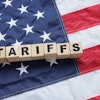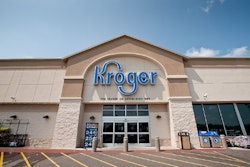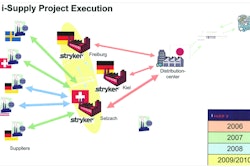Sept. 09--Most of Mondelez International Inc.'s sustainability efforts are on track, but the maker of Oreo cookies said it must figure out better ways to reduce energy use at its plants.
On Tuesday, Mondelez plans to release a progress report on its sustainability push -- on efforts that began in 2010 when it was part of Kraft Foods Inc. and on goals that Mondelez set in October 2012, when it separated from the Kraft North American grocery business now known as Kraft Foods Group Inc.
Deerfield-based Mondelez, which makes snacks such as Chips Ahoy cookies and Trident gum, set a number of goals in areas such as the environment and sustainable sourcing that it hoped to hit by 2015. For example, it aimed to reduce the energy used in manufacturing by 15 percent by 2015, measured per ton of production. So far, it has achieved a 6 percent reduction.
When the company split and reorganized, it lost a little bit of the focus on the energy-use-reduction efforts, said Christine McGrath, vice president of external affairs and head of the company's global well-being platform. Now, Mondelez plans to "build new facilities to be environmentally better designed from the get-go," McGrath said.
Meanwhile, Mondelez said it has reached a packaging goal ahead of schedule.
In 2010, it set out to eliminate 35 million pounds of packaging by 2015, and it raised that target to 50 million pounds (or about 22,700 metric tons) in 2012. It achieved that reduction this year, after slimming down packaging for products such as Trident and making display cartons for retailers easier to open and use.
Some of the company's green efforts came as retailers including Wal-Mart Stores Inc. pushed manufacturers to be more environmentally conscious in areas such as production and packaging. McGrath noted a variety of industry connections to sustainability efforts. For example, she sits on The Consumer Goods Forum's sustainability steering committee with members from companies such as Wal-Mart, Nestle and Kroger.
One area where Mondelez said it is on track is in ensuring better cocoa sourcing. In 2012, the company launched Cocoa Life, a 10-year, $400 million cocoa sustainability program. It expects to have reached about 38,000 farmers in 500 communities by the end of the year, up from 500 farmers in 200 communities in 2012. Mondelez said that 10 percent of its cocoa is sustainably sourced.
The company's cocoa-sourcing efforts include measures from working with farmers on which fertilizers are the best to use to helping tackle issues such as access to water and electricity in Ghana and Ivory Coast, two major cocoa-growing countries, where "the infrastructure is so weak," McGrath said.
McGrath said that Mondelez plans to announce new goals in areas such as sustainability and well-being in 2015.
Copyright 2014 - Chicago Tribune














![Pros To Know 2026 [color]](https://img.sdcexec.com/mindful/acbm/workspaces/default/uploads/2025/08/prostoknow-2026-color.mduFvhpgMk.png?ar=16%3A9&auto=format%2Ccompress&bg=fff&fill-color=fff&fit=fill&h=135&q=70&w=240)

